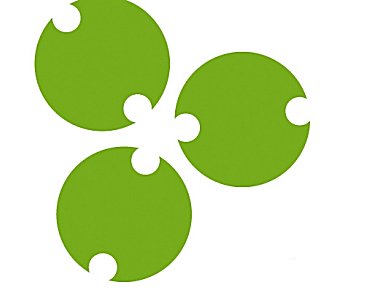CatchBio is a consortium of 21 partners from industry and academia, partly financed by the Dutch ministeries of Economic Affairs and of Education, Culture and Science, and with the support office based at the Netherlands Organization for Scientific Research (NWO). It is an ambitious research programme of eight years in the field of catalytic biomass conversion covering the whole spectrum of subjects from biofeed to products in three main application areas in an integrated manner.
Aims
CatchBio aims to convert the various components present in second generation biomass (cellulose, hemi-cellulose, lignin, proteins and oils) into fuels, chemicals and pharmaceuticals._resized(1).jpg)
It is unique in the participation of several specialized medium-sized enterprises (SME’s) in addition to industrial key players. CatchBio stakeholders are involved in the Green Chemistry Campus in Bergen op Zoom, in the production of 100 % green and recyclable PEF bottle, they are listed in the ‘Global CleanTech100’, or they are partner in the world’s largest production plant for biofuels. Industrial stakeholders have representatives in so called user committees, which have been erected for all research projects in the programme.
CatchBio will deliver a new generation of experts in renewable catalysis, will create innovative options for using renewable based processes and CatchBio technology will be implemented by industrial stakeholders based on delivered proof-of-principles. The generated technology should by the end of the programme in 2015 have significant potential for the long term (~2020/2030) commercial pipelines of the industrial collaborators.
Partners
The CatchBio aims related to networking are twofold:
i) A sustainable internal network, i.e., maintainable collaborations between Dutch research groups in the field of catalytic biomass conversion and avoiding brain drain of skilled researchers on this topic, and
ii) A sustainable external network, inside and outside the Netherlands. This involves linking up with other research initiatives and forums, sharing complementary expertises with adjacent research fields and taking part in scientific agenda setting in national and European funding and policy bodies.
Research
The CatchBio consortium allocates 37 research projects in the three research clusters Energy, Bulk Chemicals, and Fine Pharmaceuticals. Research activities are subdivided in fundamental and industrial research.
These research projects have been strategically allocated, based on roadmaps which outline the approach for narrowing focus and increasing mass towards the most promising catalyst concepts as a function of elapsing time. This strategy addresses the complete process chain, from feedstock to product.
Goals
With the increasing demand for fuels, materials, polymers, drugs and fine chemicals, CatchBio wishes to contribute to the development of industrial processes capable of turning renewable biomass into a viable alternative for crude oil. It wishes to do this for energy, bulk chemicals and fine-pharma chemicals as the principal outlets for this feedstock.
Catalytic technology aids 90 % of all these industrial processes. Its added value to the world economy has been estimated at trillions of Euros per year.
The Netherlands is home to many of the top players in this important field. They will use their experience in high-level strategic and applied research to create new catalyst materials, new catalytic conversions, and novel processes and reactors. To be a viable alternative, these novel processes for biomass-based materials should prove to have a net reduction of CO2 emission reduction over fossil fuel alternatives, have environmental benefits, be economically competitive, and be producible in large quantities without affecting food supplies. These criteria will be used within the CatchBio program to evaluate the newly developed catalytic technologies based on life cycle analysis and, consequently, come up with not only innovative solutions, but also sustainable breakthrough technologies for our society.
Future Ambitions for 2020
Relying on groundbreaking scientific expertise, CatchBio will address in the upcoming years several important challenges which are crucial in the transition to a biobased economy. These challenges include:
- fundamental studies on the stability of the catalysts;
- focused study on drop-in greenification for limited number of current bulk chemicals and biofuels based on specific business cases;
- development of new routes to fine chemicals and pharmaceuticals, preserving functionality and chirality;
- intelligent combination of thermochemical, chemocatalytic and biocatalytic processes;
- characterisation/analysis of raw materials and complex product mixtures.
Facts & Figures
- CatchBio facilitates 37 Ph.D. students and 17 postdoc years in 37 research projects (and more to come!).
- The projects address almost the full range of biomass fractions.
- The scientific quality of several individual projects was reviewed as excellent; the quality of the programme as a whole is on an international level very good.
- Researchers are recognized for their outstanding expertise, obtaining permanent positions at knowledge institutes.

- CatchBio is part of the € 100 million investment programme Smart Mix, aimed at boosting innovation in the Netherlands.
- CatchBio is partner in the Biobased Economy, a high-priority R&D area of the Dutch government: find out more on www.biobasedeconomy.nl.
For more information read an interview with consortium partners:
- CatchBio – Speaking with Consortium Partners,
Vera Köster,
ChemViews magazine 2012.
DOI: 10.1002/chemv.201200025 - CatchBio webpage




